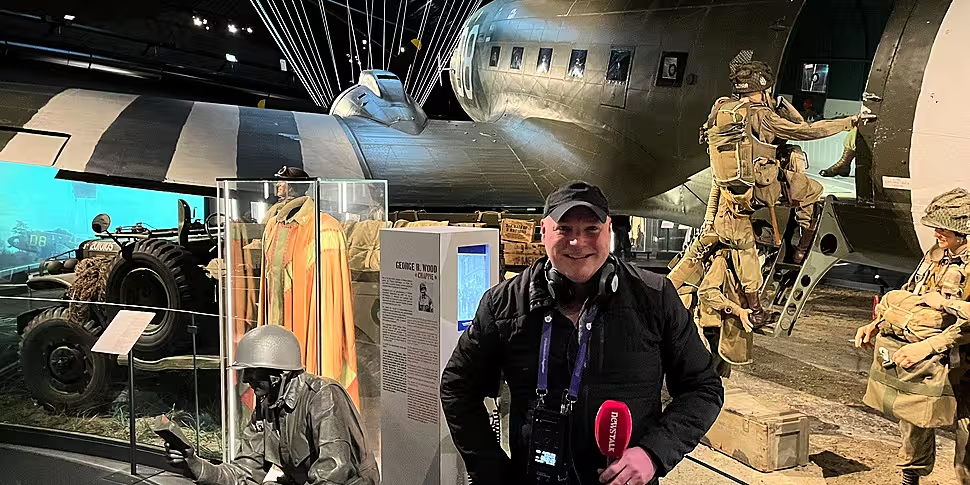Eighty years ago, Major George Borny stepped ashore on Sword Beach in Normandy amid a blaze of gunfire.
The 28-year-old was from the nearby Bailiwick of Jersey, a British Crown Dependency, where on a clear day you can even see the northern coast of France.
Upon the outbreak of war in 1939, he had joined the British Army and on St Stephen’s Day that year, he married Anne Millerick, a nurse from Cork.
The following year, the Nazi Wehrmacht marched into France and installed a pliant dictator, Philippe Pétain, to do their bidding.
Four years later, the Allies had decided the time was right to liberate France - and all the other occupied countries of Europe - from Hitler’s tyranny.
D-Day, as June 6th 1944, came to be known, would go down as one of the most consequential days in the history of Europe.
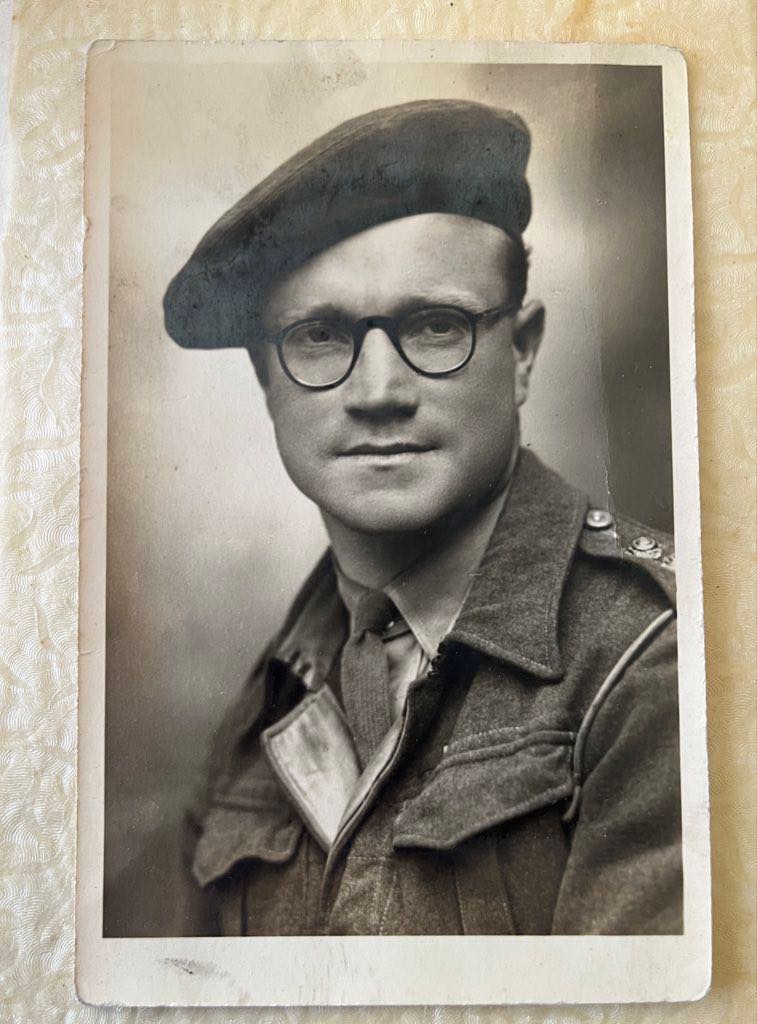 Major George Borny. April 2024. Image: Newstalk
Major George Borny. April 2024. Image: NewstalkFor The Pat Kenny Show, his daughter Rosemary McKean, spoke to her son, Henry, about what it was like for her father on that fateful day.
“My darling father was involved in the horrors of D-Day - on Tuesday June 6th 1944, Operation Overlord,” she said.
“He and his company of the Royal Army Service Corps left their amphibious landing craft about 7.30am onto Sword Beach in Normandy.
“They encountered a barrage of heavy machine gun fire from the German pillboxes.
“Thousands of British and Allied soldiers perished or were seriously injured; the beach was also heavily mined.
“My father also chose to leap early from the ramp into deep water to avoid enemy fire.”
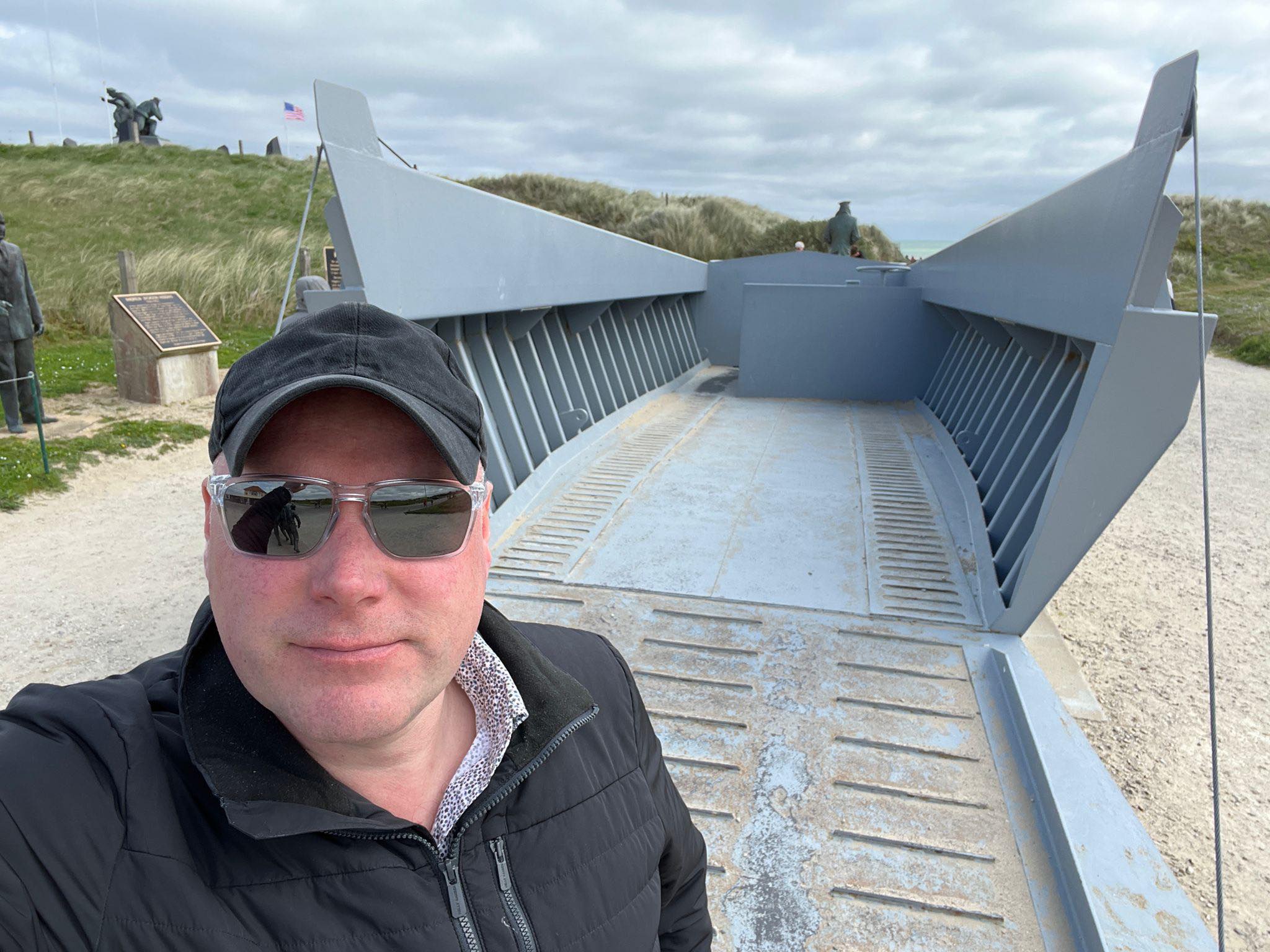 Henry McKean in Normandy. April 2024. Image: Newstalk
Henry McKean in Normandy. April 2024. Image: NewstalkGrowing up, Mrs McKean found her father was reluctant to speak about his experiences during the war.
Like many of his generation, he was keen not to dwell upon the horrors he experienced - despite the pleas of his grandsons for tales of wartime heroism.
It was only towards the end of his life that he began to open up about his war record.
“It was only in November 2002, close to Remembrance Sunday that your grandfather died,” she said.
“Whilst caring for him, he divulged the graphic details to your father Hamish of the hell that he and others faced on D-Day and after.
“By the grace of God, it was a miracle that he survived.
“The hellish hand to hand combat, it was kill or be killed.
“Lest we forget the ultimate sacrifice that the Allied and British forces made for the victory on the Western Front.”
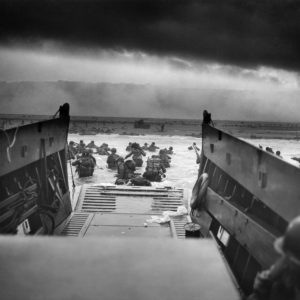 D-Day.
D-Day.As part of his research for the report, Henry made a journey to Sword Beach in Normandy where his grandfather landed all those decades ago.
An estimated 160,000 Allied troops took part in the invasion of Normandy and, although Dublin had decided to stay neutral in the conflict, many of those involved were in fact Irish.
Writing his book, A Bloody Dawn: The Irish at D-Day, retired Lieutenant Colonel Dan Harvey concluded the Irish had been “all over D-Day”.
“They were planning it, they were codebreaking,” he said.
“They were part of the initiatives that got new vehicle types that would be obstacle breaking.
“Then, of course, there was the tough end - those fighting.”
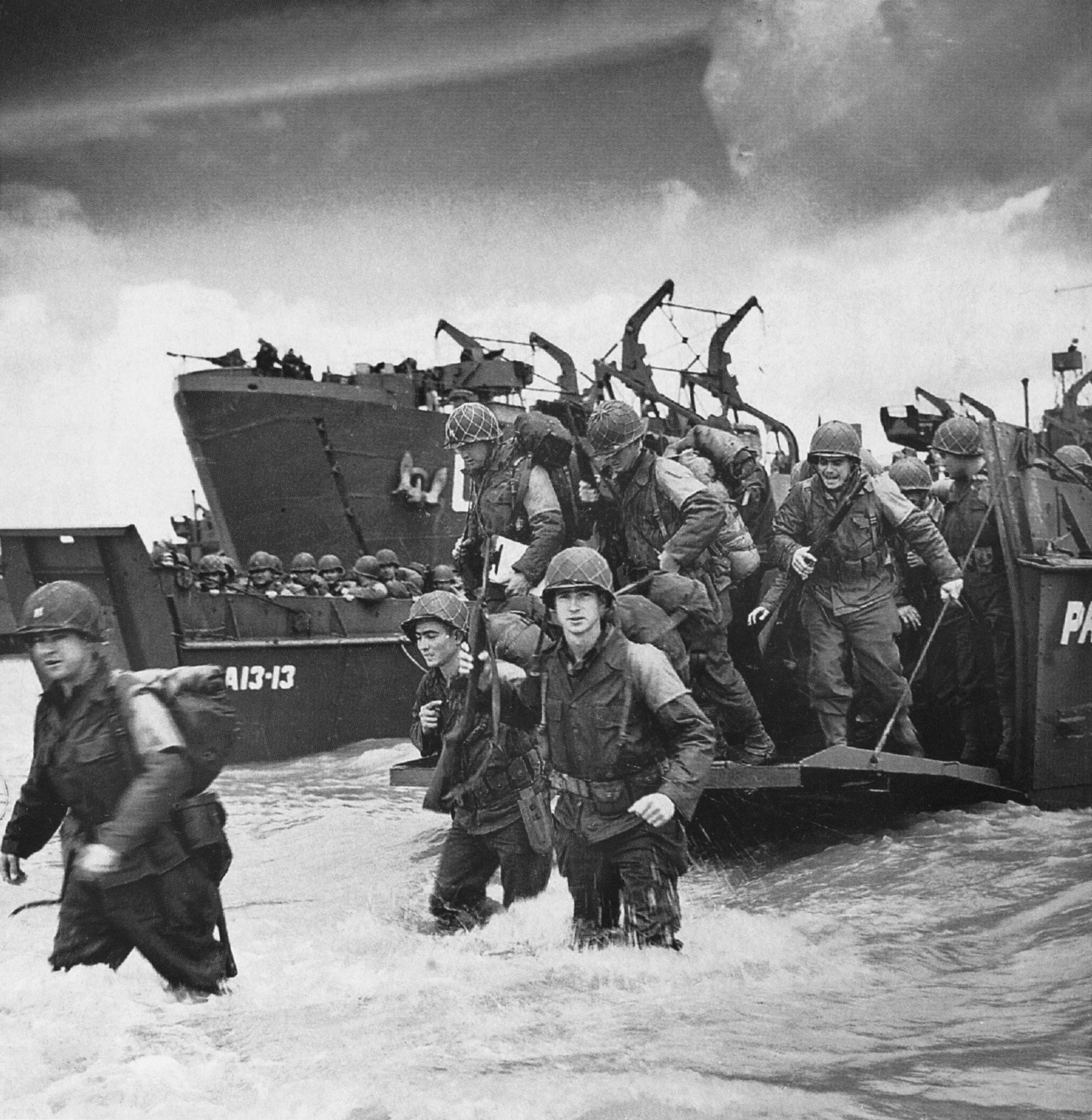 American soldiers landing on the coast at Utah Beach during the invasion of Normandy, 6 June 1944.
American soldiers landing on the coast at Utah Beach during the invasion of Normandy, 6 June 1944.At least 120,000 Irishmen - from both sides of the border - joined the British Armed Forces during the conflict.
Some 50,000 from the North were thought to have signed up, while 70,000 from the South did so - figures that Lt Col Harvey believes “embarrassed both Governments".
“There is beginning to emerge, a strong body of evidence that there was 150,000 involved because if you go to the next of kin, there’s believed to be 150,000 addresses [in Ireland]," he said.
“And a number of people fought under assumed names and we haven’t even spoken about the Irish that were in Britain.
“So, [it’s officially] 120,000 but I believe it’s well in excess of tens of thousands of that.”
Henry McKean was in Normandy with thanks to Stena Line, who sail from Rosslare six days a week
Main image: Henry McKean in Normandy. Image: Newstalk


